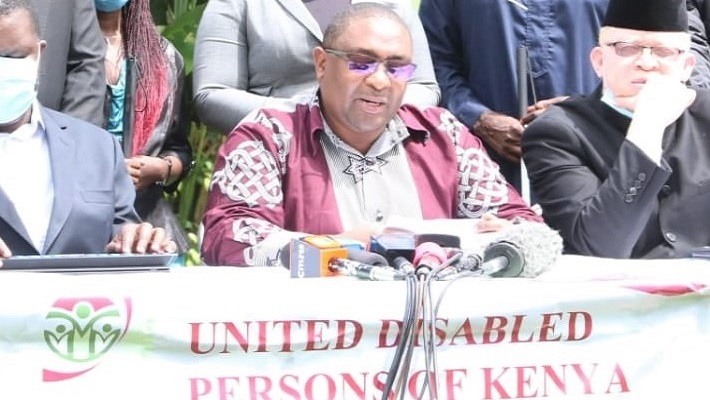By CISA
NAIROBI, MAY 27, 2021 (CISA) – Organizations for Disabled Persons in Kenya have called for increased social protection, retention in work places and inclusion in the efforts to mitigate the coronavirus pandemic.
The United Disabled Persons of Kenya (UDPK), Association for the Physically Disabled of Kenya (APDK), and the Ecumenical Disability Advocates Network (EDAN) have expressed concerns that persons with disabilities are increasingly facing the risk of losing jobs, incomes and livelihoods due to the pandemic.
“While Covid-19 responses are not inclusive to persons with disabilities, restrictions of movements and lockdowns in various parts of the country have deprived persons with disabilities of their support systems and interfered with their access to essential services, including medical services,” said Anderson Gitonga, the UDPK’s Executive Director in a statement shared with CISA.
The organizations expressed their worry that some of the persons with disabilities have missed employment opportunities, while others have had their employment terminated, as companies and organizations re-organize to adapt to changes related to the pandemic, adding that even those in self-employment have been hard hit as opportunities and customers decrease.
“The government should make sure that measures and interventions made to control the spread of the virus are adapted for persons with disabilities. This should be replicated in contexts where ongoing support is needed for persons with disabilities to live safely and independently,” Gitonga added.
Benson Kiptum, the acting Chief Executive Officer, APDK noteed that while Covid-19 pandemic has required people to work from home or remotely, this has proved difficult for persons with disabilities since their houses do not have the same support equipment and systems equal to those available in the workplaces.
“Covid-19 measures are indirectly affecting persons with disabilities. They are preventing families and bread-winners in households from working. This is negatively impacting the overall income of their households,” he said.
“This current disruption in income represents an increased burden for persons with disabilities and their households. Traditionally, the households typically face extra costs and expenditures related to disability. This is pulling many of them more rapidly into poverty,” Kiptum observed.
According to Angeline Okola, EDAN’s programme coordinator. Unemployment rate among persons with disabilities in Kenya is higher than the non-disabled, while those in employment tend to be underpaid or have fewer opportunities for upward mobility in their places of work.
“In our experience, there exists a knowledge gap on mitigations to promote employment and or retention of employees with disabilities in private and public sector. A scientific study on employment of persons with disabilities is needed to enable the decision-makers make informed decisions,” she said.

